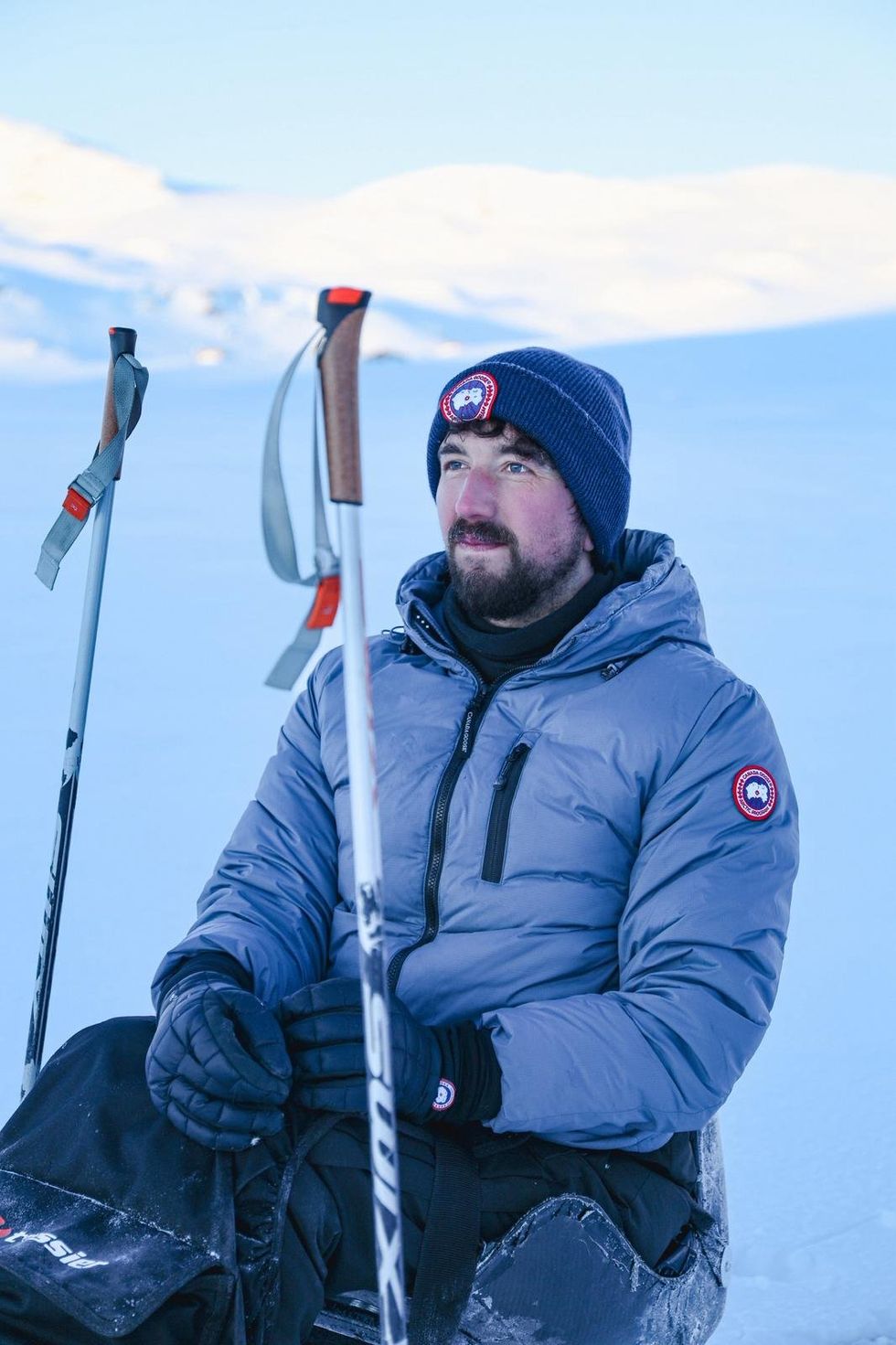A British adventurer paralysed from the chest down is set to embark on an epic expedition in Antarctica in a bid to break a world record.
Darren Edwards, from Shrewsbury, is set to sit-ski 137 miles or 222km to the South Pole over a 20-day period in December.
If completed, Mr Edwards would break the record for the longest sit-ski to the South Pole – currently sitting at almost 69 miles or 111km.
Along the way, the adventurer is hoping to raise £100,000 for spinal cord injury charity Wings for Life through JustGiving.
“Wings for Life … is looking for a cure for spinal cord injury,” Mr Edwards told GB News.
“They funded, I think, 350 research projects across the world and last year in Switzerland, one of their projects saw an individual who was paralysed 10 years ago, a very similar injury to myself, one of their research trials had him walking again.”
Having been paralysed from the chest down eight-and-a-half years ago while rock climbing in North Wales, Mr Edwards said the charity was “turning kind of a dream into reality”.
“They say in the next 10 years there will be a cure for spinal cord injury,” he said.

Darren Edwards is hoping to raise £100,000 for the Wings for Life charity
|
SUPPLIED
“I was very lucky to survive (my injury) … it’s a very personal cause.”
Selflessly, Mr Edwards added that “it doesn’t have to” change his own life, but if Wings for Life can alter the future for someone else, it would be “worth” the challenge.
“If there’s a person that goes into hospital in the future, instead of being told that they’re never going to walk again … (they will be told) that they will be able to relive their life, that’s worth us skiing to the South Pole for.”
The challenge itself is not going to be an easy one, and several problems can arise.
Mr Edwards will be accompanied by British explorer Lucy Shepherd, chief scout Dwayne Fields and film-maker Matthew Biggar, who is ready to document the journey.
Together, the group will be tackling the “serious expedition”.
The challenge was also at risk of never seeing the light of day, Mr Edwards told the People’s Channel that “we’ve had to really push against some barriers to even be allowed to give it a go”.
“The environment we’re going into is a hostile environment for anybody, but you add a disability into the mix there,” he added.
“It complicates it further. For me, I can’t feel or move below my chest, so with hypothermia and frostbite, you’ve got to be really careful.
“We’re going to be skiing for eight to 10 hours a day … I’m nervous to see how physically I hold up and psychologically how tough those moments are going to be.”
But getting to this position in the first place was difficult.
“So much of my identity and my future was wrapped up in the ability to stand and walk and climb and run … then you’re being told by a surgeon you’ve broken your back … and you’re never going to walk again,” Mr Edwards said.
In the midst of a “battle of acceptance”, Mr Edwards said to himself on the day of his accident, “when we were waiting to be rescued … for about three hours, I promised myself that whatever happens next just don’t let it beat you”.
“I remember grabbing my best friend who saved my life … and said don’t let me give up,” he added.
“That really helped, there’s almost like a moment of accountability and ownership.”
Admittedly, Mr Edwards said it took “a couple of years” to fully come to terms with the situation.
With the world record challenge ahead, the adventurer wants everyone to know that “together with everybody’s support, we will find a cure for spinal injury”.
“It can happen to anyone … what we’re doing is hopefully showing people … providing that sense of hope … you can overcome (anything),” he said.
“There’s life beyond the tunnel.”

